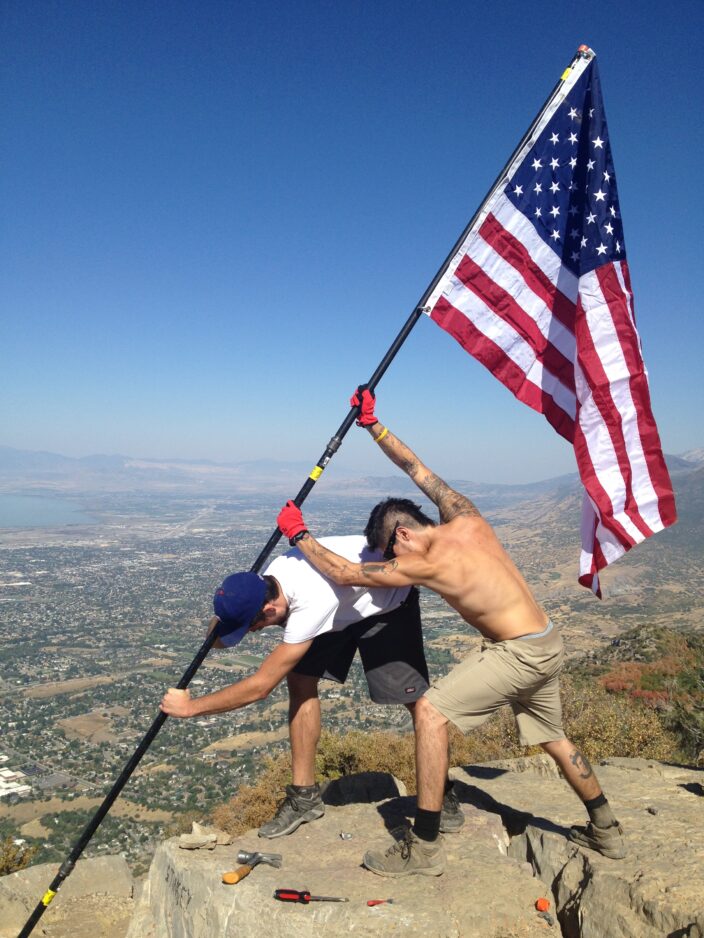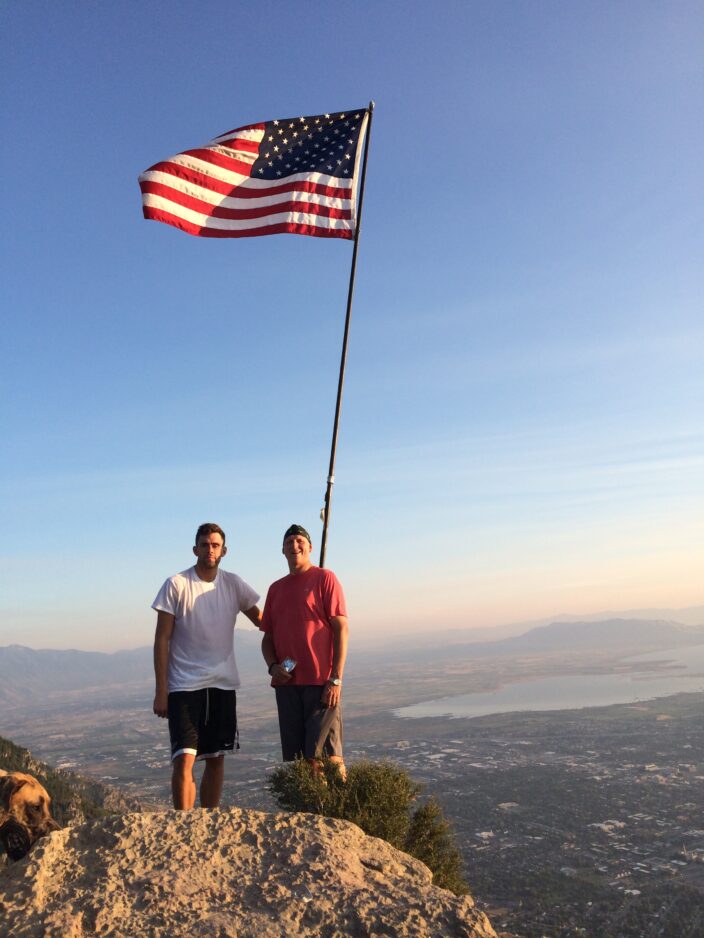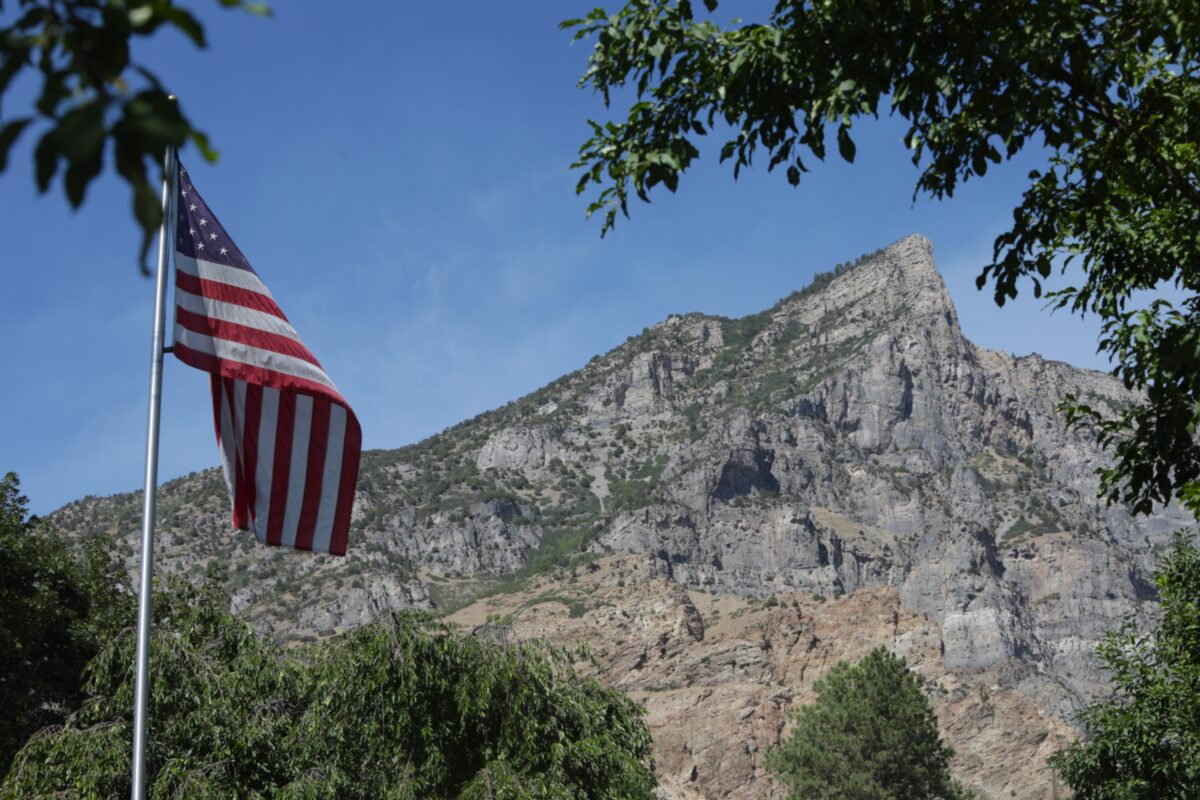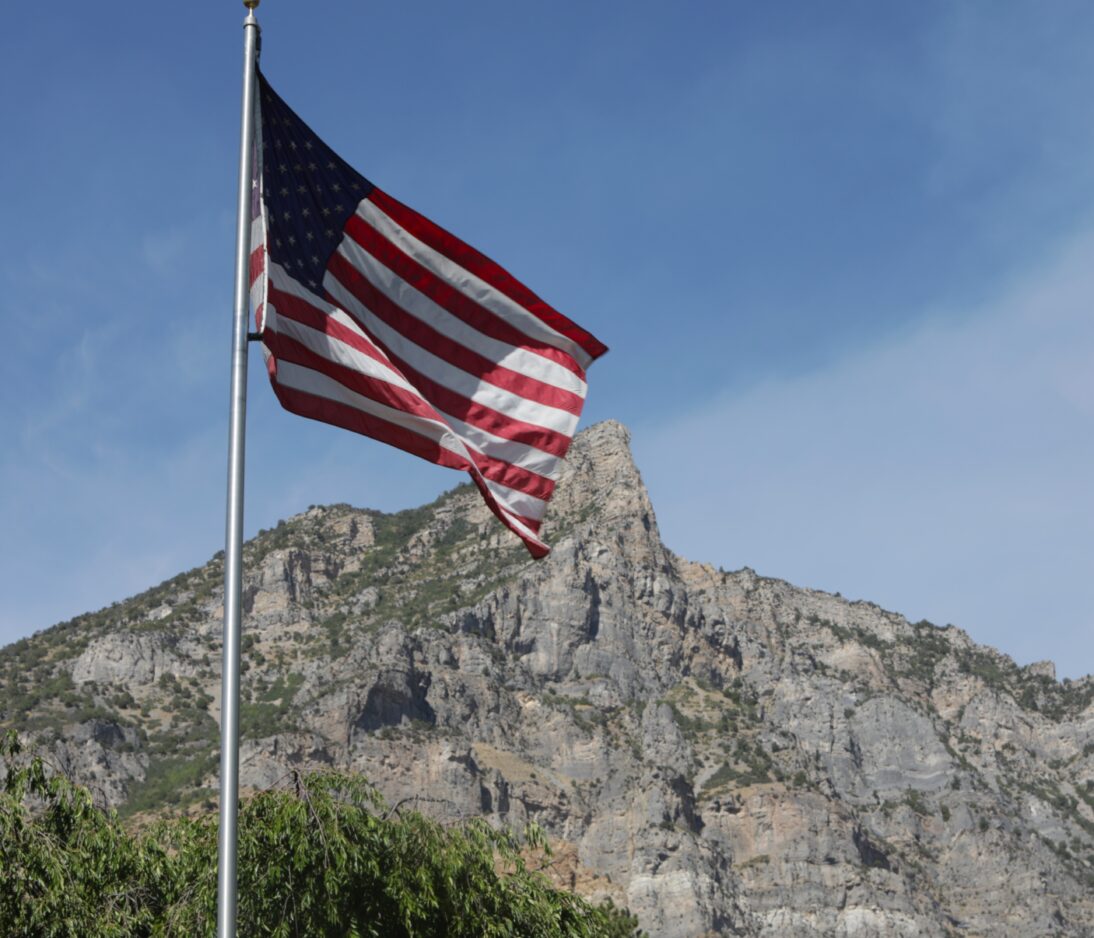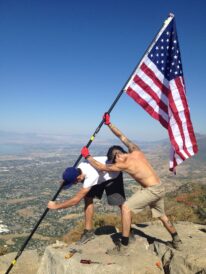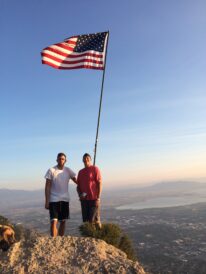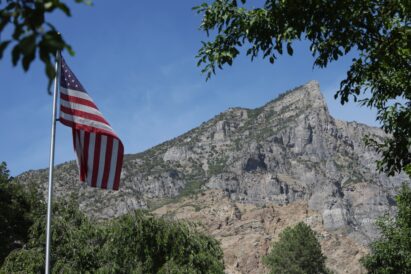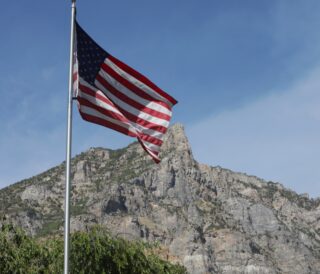Persistent patriotism: Congress members introduce bill that would allow American flag to fly again at Kyhv Peak
- Two men plant an American flag atop Kyhv Peak in an undated photo.
- Robert Collins, right, is pictured with his son atop Kyhv Peak with an American Flag in an undated photo.
- An American flag is pictured with Kyhv Peak in the background Tuesday, July 29, 2025, in Provo.
- An American flag is pictured with Kyhv Peak in the background Tuesday, July 29, 2025, in Provo.
Federal lawmakers from Utah are teaming up to get an American flag returned to the top of Kyhv Peak.
Sen. John Curtis and Sen. Mike Lee introduced last week the “Star-Spangled Summit Act,” a bill to authorize a special-use permit to allow the American flag to be flown on the popular peak above Rock Canyon in Provo.
Rep. Mike Kennedy also introduced companion legislation in the House of Representatives.
The tradition of flying a flag at Kyhv Peak, formerly Squaw Peak, was started by Provo resident Robert Collins in 2000. He said he stopped in 2022 after a man who claimed to be a volunteer for the U.S. Forest Service kept cutting it down because it wasn’t allowed to be put up on Forest Service land.
Curtis declared in a press release that Congress intervention should not be necessary to allow an American flag to fly on a mountain top and said the issue underscores the challenges the state faces with the federal government owning 70% of the land.
“Decisions that should reflect the values of a community too often require navigating layers of distant bureaucracy. … This is about more than red tape — it’s about recognizing that local traditions, patriotism and common sense still matter,” Curtis said in a press release.
Kennedy’s office told the Daily Herald on Tuesday the bill is, “a common sense solution that upholds an important and fundamental principle: that those who live closest to the land should have a say in how it’s used. Utahns shouldn’t need permission from distant federal agencies to respectfully honor their country.”
Curtis first introduced the bill as a member of the House of Representatives last year but reintroduced it in the Senate on July 23. His press office told the Daily Herald on Tuesday the bill will go to the Senate Energy and Natural Resources Committee, which Lee is the chair of.
“So, hopefully it will see some movement after August,” Curtis’ press office said.
The flag first arrived atop Kyhv Peak 25 years ago when Collins, then a scoutmaster, carried it up with his troops after camping at a meadow beneath the peak.
“We took it up to the top, and some of the scouts were like, ‘Hey, leave it up here for a while. Let’s put it up.’ So we made a pole,” he said.
The tradition grew from there, with Collins going with his sons or friends annually, bringing the flag up in late May or early June and taking it down in October. The flag also grew over time; by 2022, Collins had a 25-foot poll with a 5-by-8-foot flag that could be seen from the valley.
“A lot of times when BYU was playing an afternoon game on a Saturday, they’d come back from a commercial and they used to have the flag filling the screen, and then it just got smaller and smaller as they panned back into the stadium,” Collins said.
Issues arose in 2022 when Collins said he was confronted by the supposed volunteer for the Forest Service who told him, “You can’t put that flag up there.”
Collins said he explained he was just doing it for patriotic reasons, but the man persisted, going as far as removing it himself.
“He would physically take a hacksaw there and cut it down,” Collins said. “So the trouble is, it cost me about $200-300 every time I put one up for the pole and the flag. And so I just thought, I’m not going to keep hauling all that up there for him to cut it down. So that was when we kind of stopped.”
Collins also contacted the U.S. Forest Service directly, which he said was sympathetic, but said they had to adhere to their policy. So Collins proceeded to get then Rep. Curtis involved, who first introduced the legislation last year.
After Curtis became a senator, his team reconnected with Collins this spring and said the bill would be reintroduced, Collins said.
If it passes, he will take a flag back up the mountain right away.
“I’ve probably had 100 people ask me this summer, ‘When are you putting that flag back up at Squaw Peak?’ he said. “A lot of people want it back up there and are expecting us. So yeah, I will. I’m healthy. I was up there on Saturday. I hike up there about every other week just for exercise. I definitely will put it back up.”
Curtis’ press release said the key provisions of the Star-Spangled Summit Act are as follows:
- Directs the Forest Service to issue a special-use permit to Robert Collins for the placement and seasonal maintenance of a flagpole flying the U.S. flag on Kyhv Peak.
- Authorizes the Forest Service to set appropriate conditions for the care, safety and environmental responsibility associated with the flag display.
- Provides for the permit to be reviewed, reissued or terminated based on future circumstances or violations of terms.

